Final IST Week
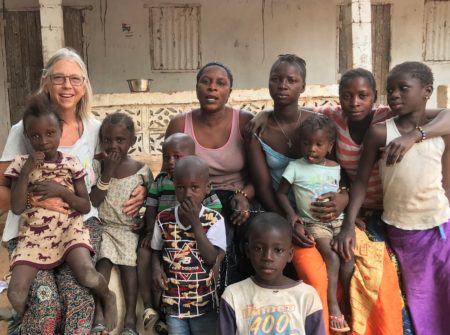
The final week of IST (In Service Training) was packed full of events. One highlight was being able to visit my training village and spend time with my first host family. This compound has hosted many previous trainees, and I was very fortunate to have lived with such a warm and loving family. They allowed me the space to find my comfort zone in a new culture, were curious about my life in America, and appreciated the benefits Peace Corps brings to The Gambia.

Before going to the village of Seykunda, we stopped in the local market town of Soma, for silafandoo (Mandinka for hostess gifts). When the Peace Corps van pulled into Seykunda, we were met with shouts of joy, children jumping up and down, and warm hugs from the adults. After greeting everyone, I was escorted to my former compound, where I presented the silafandoo of apples and Ataaya tea to my family.
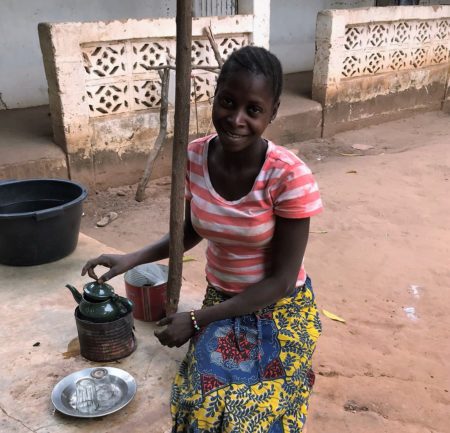
Reconnecting with my training village host family was very rewarding. Although, I still have limited language skills, I was able to communicate with them better than I expected. I missed seeing my host mom, Kata who was in Senegal, but visiting with rest of the family and some of the neighbors was very heartwarming.
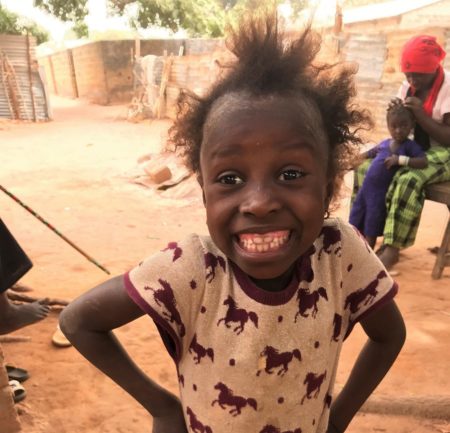
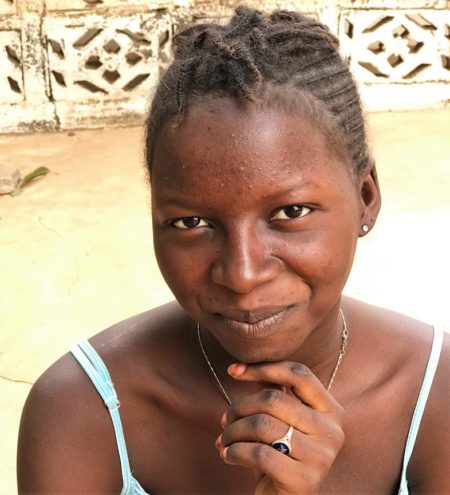
Many compound improvements had taken place since I left in December. The electricity was now on, the row house had a new roof, my rooms were getting refurbished with fresh plaster on the walls and floor for the next trainee, and there was now a complete compound fence to keep animals out at night.
This may be a third world village, but my family has a first world attachment to their smart phones. They love to share photos and keep connected on Facebook and WhatsApp. I was able to share photos from my blog, and they were thrilled to see themselves on line.
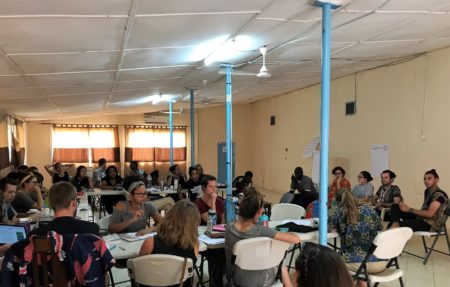
The fifteen Health volunteers that also arrived in October 2017, joined the twenty Agriculture volunteers for our final training week to cover topics that both sectors will be working on. The last time we were all together was during our Swearing in Ceremony. It was so much fun to find out how everyone was getting along in their permanent sites, share our acclimation stories, and play games together.
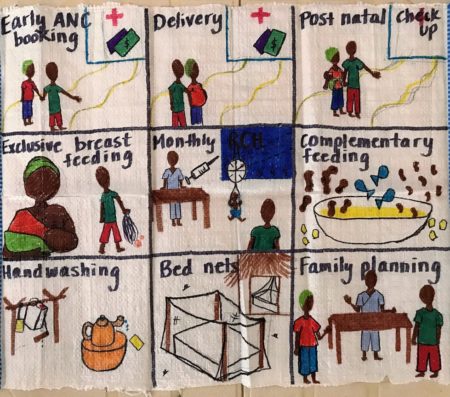
One joint session covered lesson planning and teaching aids, such as mural painting and using rice bags to illustrate concepts for healthy living. These are goals the health and agriculture sectors work on together. Increasing food security with improved farming practices, and introducing foods with a higher nutritional value, such as the yellow sweet potato that contains vitamin A, instead of the white variety which is more common here. Addressing the importance of proper diet to decrease the prevalence of high blood pressure, diabetes, and goiter by consuming less sugar, less high fat foods and using iodized salt. Preventing malaria with the use of bed nets and more awareness of the mosquito life cycle at home and in the gardens. Improving maternal and child health with monthly rural health clinics, for family planning and prenatal health care, childhood vaccinations, promoting exclusive breast feeding for the first six months, and encouraging women to deliver their babies in a hospital. Simple things like hand washing before every meal, and proper sanitation can prevent many contagious diseases.
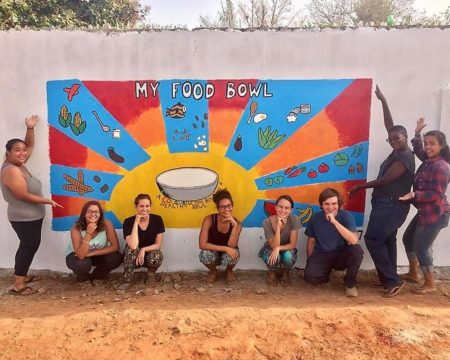
During the three months of the Community Entry Period we complete baseline assessments of our work site and community. Those observations helped us develop our initial project proposals for our time in service. Although, I personally felt three months was too long to be restricted to our permanent site, I see the value in waiting to develop our projects, until after we had time to assess our communities. One project I was considering, would require considerable financial and staff support from my school. Upon reflection, I decided to start with projects that would require less resources. Schools in The Gambia are poorly funded, and staff retention can be a problem. Teacher training programs are often free or low cost, and teaching jobs are practically guaranteed. Unfortunately, it is common for some people to begin their career as a teacher, and then move onto more lucrative professions.
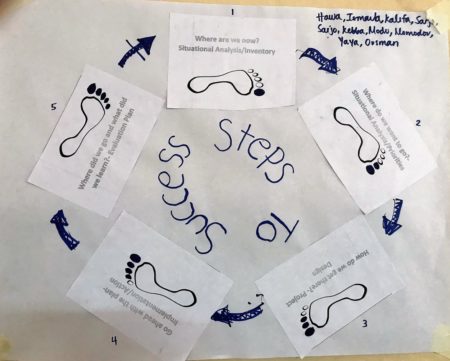
For the final three days of IST, volunteers had a community member attend our planning sessions. Together we developed a PDM (Project Design & Management) plan that included our “Steps to Success” outline. 1. Inventory – where are we now? 2. Priorities -where do we want to go? 3. Project design – how do we get there? 4. Implementation – go ahead with the plan. 5. Evaluation – where did we go and what did we learn? Before coming to IST, I had discussed my project proposals with the school administration and my counterpart Jatta, who attended the planning sessions with me. It is essential to have good community support for our projects, because when a PCV leaves after their two years of service, success will depend upon continued Gambian involvement.
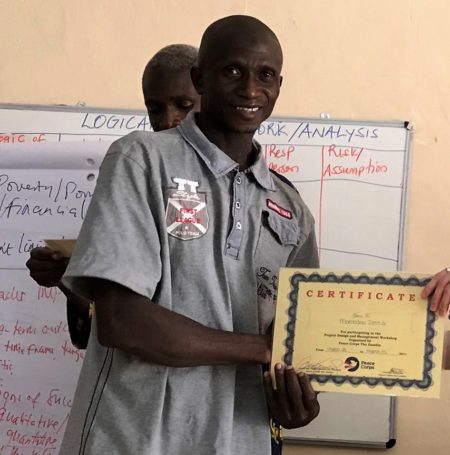
I now have two primary projects I will begin implementing at my school work site. In addition to our primary projects there can be secondary projects that will evolve more organically, such as reading with the children in my compound, assisting with a family building project, or being a resource to a local woman developing her own project. I have a few ideas for secondary projects that I will discuss in future blogs. There are also volunteer committees we can join, and many opportunities to contribute to cross sectorial projects with health or education volunteers. One cross sectorial project I already participated in was the painting of two murals during GAD month.
Project #1 – Agricultural students will plant on school property at least one tree during their three year program. They will select a tree species to plant, learn what is necessary for good tree health, make soil amendments such as compost and biochar, prepare the planting site, plant the tree seedling, build a temporary fence to protect the seedling, and create a label describing the tree with date planted and their name. They will need to maintain the health of the tree with regular watering, fertilizing, and pest control methods while in the program. They can also choose to plant additional trees at other locations such as their home compounds.
This project will address global deforestation by increasing awareness of the importance of trees for erosion control, providing food for people and livestock, and combating climate change.
Project #2 – Start a seed bank at my school – ATC (Agricultural Technical College) in Farafenni. Proper seed storage techniques will be developed and permanent space will be provided for long term storage. Trees seeds will be collected by PCVs from all five regions of The Gambia and donated to the seed bank. Open pollinated vegetable and flower species will be planted in the school garden to be collected and stored in the seed bank. I have sourced open pollinated seeds to promote the saving of seeds that propagate true to type. Agriculture students will be involved in all aspects of this project.
This project will address food security in The Gambia, provide seeds for the agricultural students to plant in their garden beds, and be available to PCVs to plant in the communities they serve.
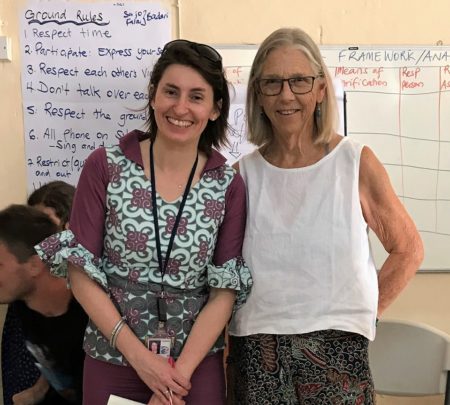
The new Country Director, Megan Wilson, arrived in country 3 days prior to visiting us at IST. She is originally from New Mexico, attended the University of Colorado, and was a PCV in Guinea from 1997-99, where she taught math to 7th-9th grade students. As a RPCV she has worked in International Development, most recently in Benign for eleven years on Public Health Projects. She shared three words about her return to the Peace Corps family – Joy, Gratitude, and Inspiration.
2 thoughts on “Final IST Week”
Hi Susan, I just wanted to let you know that I’m really enjoying reading about your terrific experience with the Peace Corps. The world news in general is so depressing, it makes your blog so encouraging and positive. It gives hope that personal interaction can indeed help people of different worlds come together in a peaceful and loving way. Be well and keep up the great work!
Susan I am so impressed by your courage and composure, enduring the stresses, inconveniences and risks of such a long undertaking. But just like So. Hum, you will leave your Gambian community a better place. Thanks for sharing your story with us.
Comments are closed.